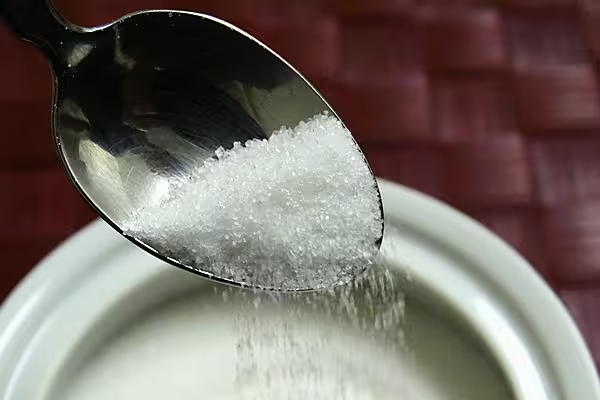Companies that profit from Britain’s sweet tooth plunged as the UK unveiled a sugar tax, a surprise move that adds another burden to food and beverage companies grappling with marketing restrictions and a shift toward healthier fare.
Soft-drink makers Britvic Plc and A.G. Barr Plc both declined more than 5 per cent in London, while ingredient suppliers Tate & Lyle Plc and Associated British Foods Plc fell as much as 4.9 per cent and 1.5 per cent, respectively. UK Chancellor George Osborne said the levy on the soft-drinks industry will be introduced in two years’ time, in two bands depending on how much sugar is in a drink. The tax will raise £520 million ($732 million) in its first year, according to government estimates, part of which will go to schools to promote healthier lifestyles.
About 26 per cent of adults in the UK are obese, the second-highest rate in Europe behind Hungary, which has adopted taxes on salt and sugar. Osborne said obesity costs Britain’s economy about £27 billion, with the National Health Service currently spending more than £5 billion treating obesity-related maladies. Britvic, which makes Fruit Shoot drinks, and Scotland’s A.G. Barr, which markets Irn-Bru, are already banned from advertising sugar-sweetened products on children’s TV or selling them in schools.
Britain’s move follows countries like France and Mexico, which have both introduced taxes on sugary beverages in recent years. Mexico has the highest obesity rate of any major country after Egypt, and is the world’s biggest guzzler of soft drinks. A tax on fatty foods in Denmark was abandoned in 2012 after it was criticized for raising prices and driving consumers to shop in neighboring countries. A proposed sugar tax in New York City was struck down by state courts that same year.
"The biggest potential game-changer is wider regulation of the sugar industry in the UK," James Targett, an analyst at Berenberg, said by phone. "The reality is that sugar is being removed from soft drinks in the UK all the time, so this levy will only accelerate that process."
Companies including Tesco Plc and Coca-Cola Co. have previously agreed to reduce sugar in their drinks under a voluntary plan aimed at improving public health. The British Soft Drinks Association has vehemently opposed a sugar tax by saying that the causes of obesity are complex and that soft drinks account for just 3 percent of calories in the average UK diet.
"I think this new sugar tax will work based on the evidence we have collected on this sort of incentive," said Ivo Vlaev, professor of behavioral science at England’s Warwick Business School. "People are sensitive to prices and costs as it is already well established that a higher price reduces consumption. The evidence shows that higher cost reduces consumption of alcohol and cigarettes."
Separately, Osborne froze the duty on beer, after three consecutive annual cuts of 1 penny a pint. The duty on spirits and most ciders was also unchanged.
News by Bloomberg, edited by ESM. To subscribe to ESM: The European Supermarket Magazine, click here.














